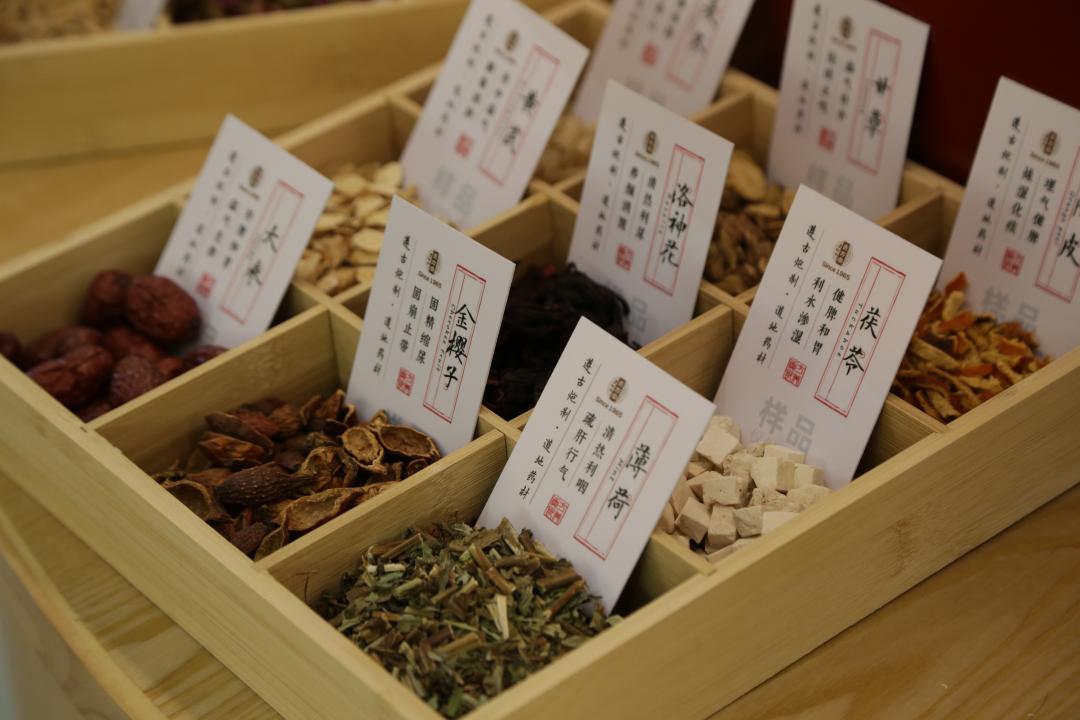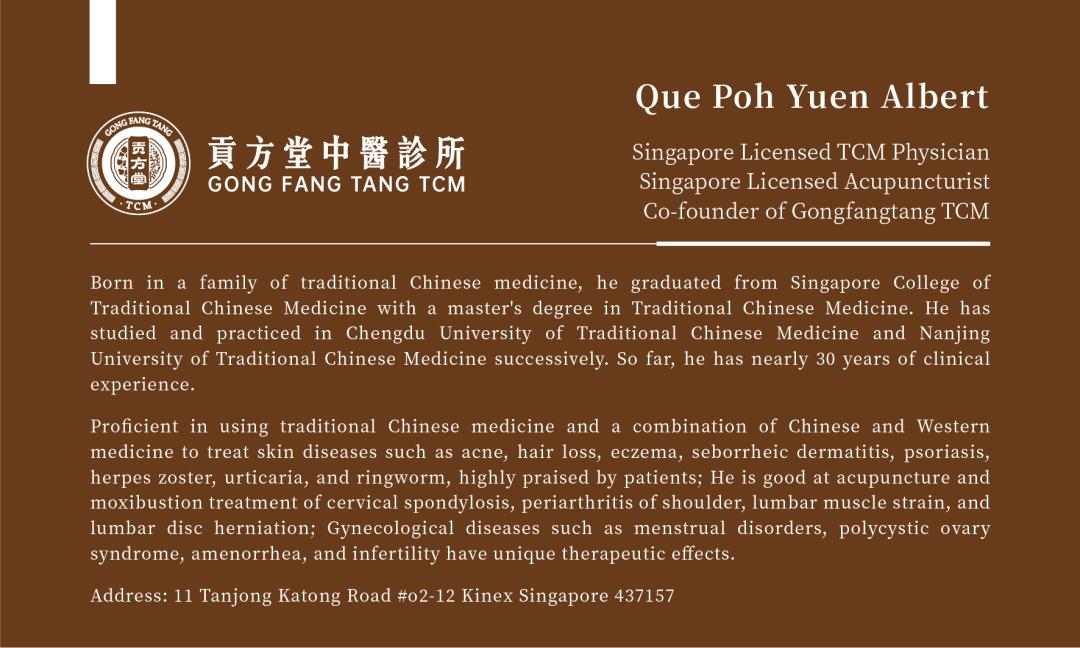- Physicians
- Clinics
- TCM
- Western GP
-
Fees
-
Deals & Privileges
- About & Resources
- Contact Us
A runny or stuffy nose, difficulty breathing, dizziness, and a heavy head – these annoying symptoms often disrupt our daily lives. Dr. Qiu Baorun, a TCM Physician at Gong Fang Tang TCM Singapore, explains that in Traditional Chinese Medicine (TCM), this condition is typically attributed to "external invasion by wind pathogens, leading to impaired lung qi diffusion." The lungs open into the nose; when external pathogens invade and cause lung qi stagnation, nasal congestion naturally follows.

Knowing Your Cold Type is Key
Distinguishing between Wind-Cold and Wind-Heat is crucial, as management differs:
Wind-Cold Binding the Exterior:
Symptoms: Watery, clear nasal discharge, pronounced aversion to cold and wind, headache, body aches, thin white tongue coating.
Management: Focuses on releasing the exterior with warm and acrid herbs, dispersing cold, and diffusing lung qi. Classic formulas include Guizhi Tang (Cinnamon Twig Decoction) and Jing Fang Bai Du San (Schizonepeta and Ledebouriella Toxin-Dispersing Powder). Simple remedies like simmering ginger, scallion whites, and perilla leaves in water to drink warm can help induce mild sweating to expel cold. Avoid raw, cold foods and ensure warmth, especially protecting the back of the neck and upper back.
Wind-Heat Invading the Lungs:
Symptoms: Thick, sticky, or yellowish nasal discharge, sore throat, possible fever, thin yellow tongue coating.
Management: Requires releasing the exterior with cool and acrid herbs, dispelling wind, and clearing heat. Formulas like Yin Qiao San (Honeysuckle and Forsythia Powder) and Sang Ju Yin (Mulberry Leaf and Chrysanthemum Decoction) are highly effective. Drinking mint or mulberry leaf tea helps clear heat. Maintain a light diet, avoiding spicy, greasy foods which can worsen internal heat.

Simple Home Care Tips:
Acupressure: Gently press key points several times daily:
Yingxiang (LI 20): Depressions beside the nostrils.
Yintang (EX-HN3): Between the eyebrows.
Fengchi (GB 20): Depressions at the base of the skull, beside the large neck muscles.
Hold each point for 1-2 minutes to help clear nasal passages and relieve discomfort.
Steam Inhalation: Add a few drops of peppermint or eucalyptus oil to hot water in a bowl. Close your eyes, lean over (keep a safe distance to avoid burns), and inhale the warm steam through your nose to moisten passages and loosen mucus.
Dietary Support: Wind-Cold: Drink ginger and jujube (red date) tea. Wind-Heat: Consume white radish soup. Avoid raw/cold foods, greasy foods, and potential allergens ("trigger foods") in both cases.
Case Study from Gong Fang Tang TCM:
Patient: Ms. Xu, 29 years old.
Chief Complaint: Recurrent nasal congestion for over a month, persistent clear runny nose worsening with exposure to cold drafts, accompanied by fatigue, aversion to cold, dizziness, and headaches.
TCM Diagnosis: Lung-Spleen qi deficiency with lingering Wind-Cold.
Prescription: Modified Yu Ping Feng San (Jade Screen Powder) combined with Cang Er Zi San (Xanthium Powder) to strengthen the Spleen, boost qi, and gently disperse cold to unblock the nose.
Outcome: After one week, nasal congestion significantly improved and energy levels increased. Following consolidation treatment, symptoms did not recur even when entering air-conditioned rooms.

Dr. Qiu Baorun emphasizes: "While common cold symptoms like nasal congestion might seem minor, if they persist or recur frequently, it often signals an underlying constitutional imbalance or unresolved pathogens. Particularly in Singapore's hot and humid climate, external pathogens easily combine with internal dampness, complicating the condition. Precise syndrome differentiation (Bian Zheng) is the cornerstone of effective TCM treatment. Relying solely on over-the-counter remedies often fails to address the root cause."